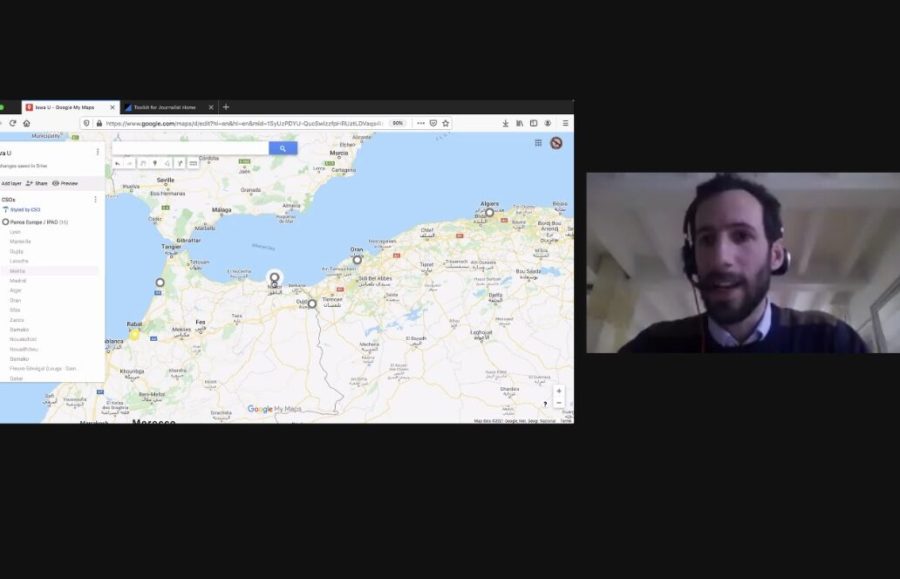A discussion on migration and mass media
March 25, 2021
Charles Autheman is an independent consultant working mainly for United Nations agencies. Autheman came to Iowa State virtually this week from Bordeaux, France, where he discussed migration and its perception in the media industry.
Autheman discussed the European Union-funded project he managed, dedicated to the promotion of balanced and quality information on migration training he conducted for hundreds of journalists being tasked with coverage in eight countries. He has been organizing and facilitating training workshops for media professionals and trade unionists for the past 10 years in over 20 different countries, including the Middle East, Africa and South Asia and most recently coordinated the production of the first media-friendly glossary on migration alongside the International Labour Organization (ILO).
Autheman explained that the future of journalism is reshaped each and every day alongside the changing dynamics of technology, accessibility and ethical practices, but where do those come into play when people look at newsworthiness and respectful approach in regards to human rights?
“Migration is one of the biggest issues of today especially with global warming and all of these issues [such as COVID-19] that are opposing mobility for a lot of people,” Autheman said. “These big issues of the day are usually complicated and require real thought and the simple answers are often just the result of impatience and ignorance, not of understanding.”
Migration is the movement of individuals or groups from one place to another for any number of reasons and the media has an immense role in shaping the perception of individuals and citizens about what those incoming migrants are like or perceived as.
Autheman said mainstream media oftentimes reflects poorly upon these populaces, framing them in a negative light associated with illegality and as a drain upon the preexisting structure resources, when in reality, this is sensationalism at work. Surge, wave, avalanche, onslaught, assault and similar terms are terms regularly utilized to describe migration and many people and media organizations fail to differentiate that many individuals cannot both be a refuge, or be approved for asylum, and also be an illegal citizen and that these are actually opposing statements.
Migrants have fundamental human rights that need to be respected. To profit or expose these individuals at one of the most traumatic times in their lives is unethical and for citizens to think refugees are illegal shows the level of lack of information people have due to it being a topic that’s never been included properly in basic education, Autheman said.
Journalists and citizens worldwide must reevaluate what they believe to know about migration in order to view migrants as they actually are in order to present their stories with compassion, understanding and competency. For more information readers are encouraged to view the ILO’s media toolkit. This tool is available to help journalists report on forced labor and fair recruitment to support the production of quality reporting in relation to migration and offer an index by which to view appropriate terminology on the topic.

















